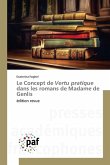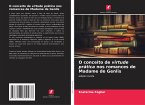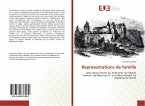Most studies on the work of Mme de Genlis, almost totally forgotten at one point, are partial and almost always focus on the same works, which date from the beginning of her literary activity. The interest of the present work lies in the fact that, by targeting a little-commented section of Genlis's oeuvre - 3 sentimental novels written in the first decade of the 19th century - we propose to draw out judgments concerning the originality of Mme de Genlis's ideas and works in relation to the intellectual climate in which they first appeared, to assess the viability of her pedagogical precepts and her vision of the ethical education she describes in her novels, and to define the particularities of the concept of practical or experimental virtue, which marks the moralizing approach of Genlisian production.The three sentimental novels: La calomnie ou les mères rivales (1800), Alphonsine ou la tendresse maternelle (1806) and Alphonse ou le fils naturel (1809), all reflect a concern forpurity and morality, providing valuable savoir-vivre and proposing a modus operandi recommendable to a virtuous person.
Bitte wählen Sie Ihr Anliegen aus.
Rechnungen
Retourenschein anfordern
Bestellstatus
Storno








